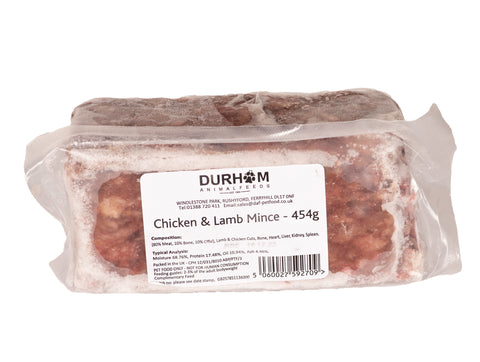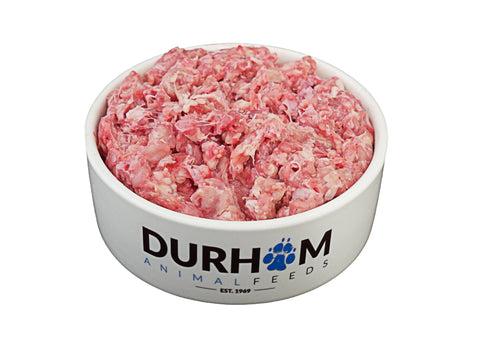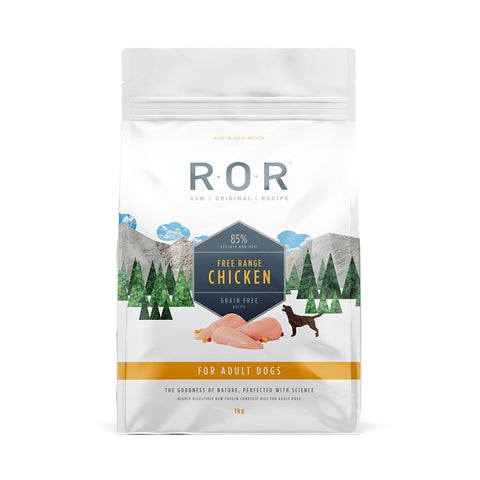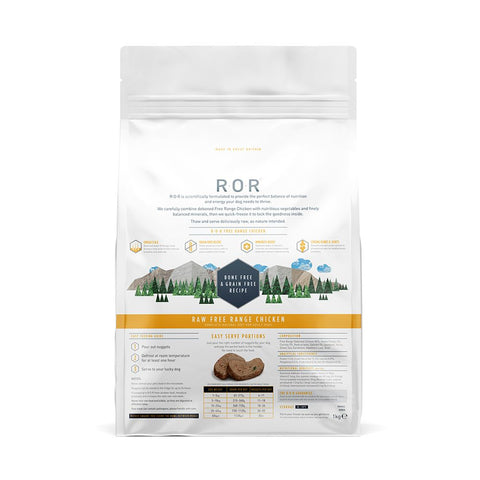What To Know Before Getting A Puppy

Choosing Your Puppy
Matching a pet to your lifestyle is essential for the happiness of both you and the animal. So if you've decided a dog is right for you, firstly think whether you want purebred or a crossbreed. Some dogs require much more food, exercise, grooming, space, and mental stimulation than others, and it is important that you research what health tests your chosen breed or crossbreed should have before getting a puppy.
If you opt for a pedigree puppy, attend shows and talk to breeders, meet the breed and get the essential information on temperament, cost, and specific requirements first. The Pet Charity recommends visiting shows such as Discover Dogs and Crufts.
In recent years there has been a surge of interest in 'designer' crossbreeds, such as the 'Labradoodle' and 'Cockapoo'. These crossbreeds are often bred by breeders who are profiteering from these fashionable dogs and may also falsely advertise these puppies as Kennel Club registered. Breed-related illnesses have yet to be
established for these pets and potential owners are more at risk to commercial puppy farmers.
Socialisation
Dogs can be a wonderful addition to the family but is highly important that your pet is trained and socialised correctly to avoid any undesirable health and behaviour problems. The Pet Charity guide to Training & Socialisation is a must read before getting a puppy, which can be found online at www.thepetcharity.org.uk if your pet shop doesnít have it available.
A puppy should not be removed from its mother before the age of eight weeks, so do not be tempted to take a puppy younger than this, even if offered. This time with its mother and siblings is vital for socialisation and long-term health. The mother will pass on essential antibodies to her puppies in the first few days of life and she also teaches behaviour, both of which are essential if you want a healthy, well-balanced dog.
Socialisation begins at birth and is on-going up to 16 weeks of age, therefore it is very important to introduce puppies to children, noises, household objects and other dogs to avoid anxieties later in life. The Puppy Socialisation Plan is a free online weekly step-by-step guide to getting your puppy ready for their new life as a family pet. Register at www.thepuppyplan.com.
Where
Friend or neighbour: Some people choose to purchase a puppy from a friend or neighbour if their pet has had an accidental litter.
These dogs typically develop into confident and sociable pets so long as they’ve been raised in a busy and stimulating environment, and given lots of human interaction, preferably with children. However, unlike a pedigree, with a crossbreed you cannot be sure what you are getting in terms of size, coat, grooming
requirements and energy levels, so do bear this in mind.
Breeder: For a purebred puppy, The Pet Charity suggests asking a local veterinary practice for advice on reputable breeders or visiting the Kennel Club ‘Find A Puppy’ website; which highlights Kennel Club Assured Breeders, who are accredited as conforming to best practice in puppy rearing. ‘KC Registered’ is not the same as ‘KC Assured Breeder’, so make sure you do your research. It is likely that you will be added to a waiting list by a good breeder, but a healthy and socialised puppy is certainly worth the wait.
A good breeder should invite you to visit the litter before purchase; so look at the environment they are being raised in – is it a clean and comfortable setting? Are the puppies being given regular human contact? Take the chance to ask the breeder questions and expect some in return; good breeders want to know their puppy is going to a responsible, loving home.
With both of the above routes to getting a puppy, it is vital to see the mother to ascertain how healthy she is and what her temperament is.
Rehoming center: A puppy isn’t the only way to get a dog – there are many good national organisations with rehoming centers across the country. Good rehoming centers will neuter, microchip and vaccinate a dog, and maybe even offer free insurance for the first few weeks of ownership too. They should have evidence of a vet check and be able to discuss what has been done to assess the dog’s temperament. Do be aware, when rehoming a dog you may not know if the pet has received the correct training and socialisation, which could become very
Pet shops: Many welfare charities and industry organisations discourage potential owners from purchasing a puppy from a pet shop, however, if you do decide to purchase from a pet shop the puppy should be around 12 weeks old. The Pet Charity recommends asking if you can visit the mother – if no information is available, walk away.
Internet/website adverts: The internet can be a useful place to find reputable breeders, however, it is not without risks. Some adverts are fronts for battery-farmed puppies, where dogs are bred purely for profit with no regard for their health and welfare. If you’re using the internet to find your new companion follow the steps below very closely!
Wherever you decide to get a puppy from, it is highly important to do your research well in advance and don’t be afraid to ask questions in order to reduce the risk of purchasing an unhealthy pet. Always examine a puppy before buying and never accept an invitation to meet someone other than where the puppy was raised.
Health Care
When you bring your puppy home, it should be at least 8 weeks old and should have received its first set of vaccinations. It is usually your responsibility to ensure your pet receives its second dose of essential vaccinations, although sometimes a breeder will do this for you.
Puppies typically have their first vaccination at around 8 weeks of age, followed by a second dose 3-4 weeks later. It can take up to four weeks for your puppy's vaccinations to be fully functional after their second dose, and therefore they should not be allowed to meet unvaccinated dogs until this time. If in doubt, you should consult your vet.
When choosing your puppy you should be allowed time to handle it ñ a puppy shouldn't be weak, coughing or sneezing. If it is small for its age (check the siblings), shows signs of diarrhoea or straining to toilet, any hair loss, fleas or discharge (from eyes, ears or nose) then it is at the least unfit and may be unwell. All puppies are different, but they generally react well to a loving owner; a severely nervous puppy (not making eye contact, shivering in the corner or unwilling to be held) has missed vital socialisation.
Parvovirus can infect a pet within seconds of it being in contact with the virus and it is almost impossible to destroy it in the nooks and crannies of dirty kennels or transport. A puppy may look healthy upon arrival,
but within a few days 'parvo' can have a distressing and potentially fatal effect on your new companion.
‘Puppy Farming’
As many as a quarter of owners fear they have been duped into buying a commercially-bred puppy (from a 'puppy farm'), usually via unregulated websites or a 're-seller' posing as a domestic home.
There is also a rise in the number of puppies being illegally imported, adding to the health risk. Profit is the main motive for this intensive breeding, so the mothers suffer terribly and the puppies miss the important health and socialisation steps. Though typically cheaper to buy, these puppies often cost a great deal more in the long run; not only cash for treatments but more critically heartache and suffering.
You wouldn't buy a TV set out of the back of a van in a lay-by with no warranty or receipt ñ so why would you buy a puppy in the same way?
Do’s and Dont’s
– Do be sure your puppy comes with the correct paperwork; this should consist of a vaccination certificate which
must be completed in full and/or ideally a health report from a vet.
If you are buying a pedigree puppy, you should be given a KC registration certificate and also any copies of health test certificates and results from your puppyís parents.
– Do ask how many puppies were in the litter and what sort of health issues can affect the breed.
– Do ask where the puppies have been raised. Look for the bowls, toys and bed. Not there? Then the puppy may well have been raised elsewhere.
- Do ask about their socialisation and what they have experienced in their lives so far.
– Do ask about the puppy's mother. How many litters has she had? Does or did she have any health problems? Find out her name and call her to see if she responds. But be aware, if the puppies are still very young she may be protective.
– Don’t purchase from someone who asks to meet you other than where the puppies are being raised. This is
typical for unregulated websites and classified advertisements for puppy farms.
– Don’t buy if the puppies are raised in a dirty facility. Critical and distressing canine diseases can emerge once your puppy is home.
– Don’t make a pity purchase. You arenít rescuing a puppy; you are funding this activity and laying the way for the next litter.
The Pet Charity
By following the advice in this leaflet it will help you find a healthier and happier dog, and avoid much of the stress that can come with a new family member. In summary, here is The Pet Charity's puppy buying charter:
1. Do you really want a puppy? Both young and mature dogs are available via established charities' and Kennel Club Breed Rescues.
2. Do not consider a puppy thatís been separated from its mother before eight weeks old. If you are in contact with a breeder, do not be tempted or convinced to take the puppy earlier.
3. Understand that the period up to 16 weeks of a puppyís life is critical for socialisation. Has the seller the facilities and staff to ensure correct socialisation of the puppy?
4. Do not purchase remotely, especially by arranging a meeting via the internet. Many internet advertisements are
fronts for illegal importation and battery-puppy farms, where animal welfare is compromised. Sadly once seen, it is hard to resist a 'pitypurchase'. Ideally, if using the internet, search for a licensed, Kennel Club Assured Breeder.
5. On any premises, ask for evidence of training, licensing and inspection. Depending on your local authority rules, some larger breeders may have been inspected and licensed to sell puppies by the local authority.
6. Ask for the veterinary records and vaccination certificates, and details of the veterinary practice.
If your circumstances change and you can no longer care for your pet, then having followed this advice, you can contact the original seller - especially if you signed a contract of sale when you bought your puppy.
They care about their puppies too and will discuss the right steps for return and rehoming.
Credit to The Pet Charity www.thepetcharity.org.uk
Registered Charity No: 1052488









